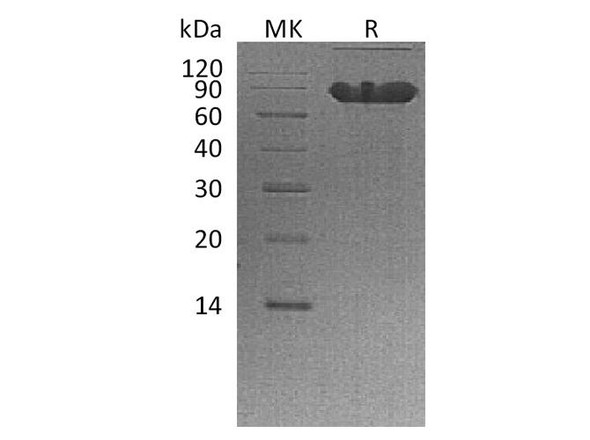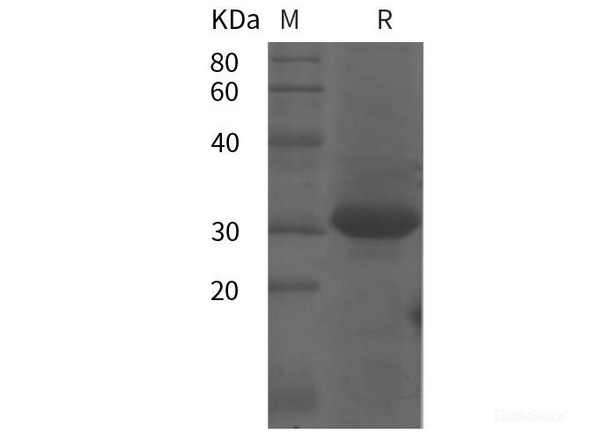CD44 is a type I transmembrane protein and a member of the cartilage link protein family. It is involved in cell-cell and cell-matrix interactions and signal transduction. Several CD44 ligands have been identified. The most extensively characterized ligand for CD44 is hyaluronan, a component of the extracellular matrix. CD44 protein is expressed on the majority of immune cells. The binding of CD44 to hyaluronan is induced on T lymphocytes after activation by antigen and on monocytes after stimulation by inflammatory agents. Under inflammatory conditions, CD44 on endothelial cells presents hyaluronan to CD44 on activated T lymphocytes and mediates a rolling interaction under flow conditions. Perturbations of the hyaluronan-CD44 interaction at the plasma membrane by various antagonists result in attenuation of receptor tyrosine kinase and transporter activities and inhibition of tumor progression in vivo. CD44 is known to interact with the ezrin family (ERM family) members and form a complex that plays diverse roles within both normal and abnormal cells, particularly cancer cells. CD44 and ezrin and their respective complex have properties sμggesting that they may be important in the process of tumour-endothelium interactions, cell migrations, cell adhesion, tumour progression and metastasis.






